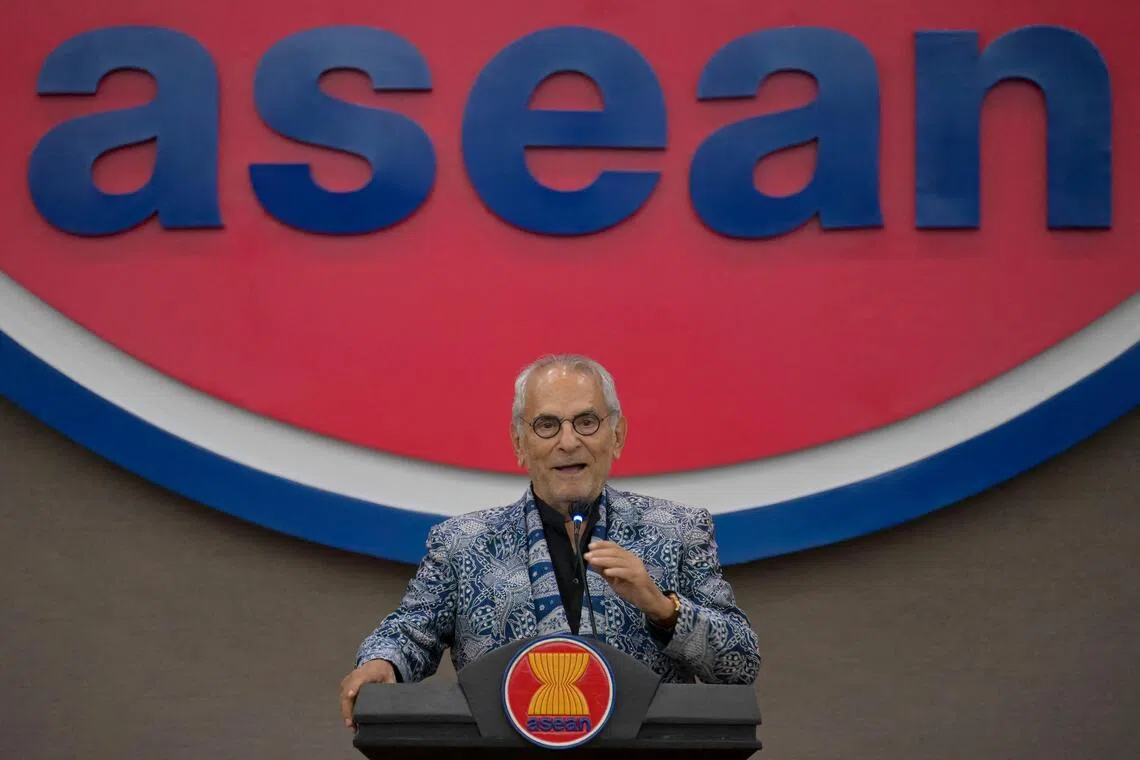Timor-Leste’s Asean membership a win for Asia’s youngest nation
Sign up now: Get ST's newsletters delivered to your inbox

Timor-Leste's President Jose Ramos-Horta has called the membership a long-held dream.
PHOTO: AFP
Follow topic:
JAKARTA – Asia’s youngest nation Timor-Leste is set to achieve a decades-long dream when it becomes the 11th member of Asean this weekend, which analysts say is a win politically, although the economic benefits remain to be seen.
Timor-Leste, South-east Asia’s poorest nation with 1.4 million people and slightly bigger than Qatar, applied to join the 10-member Asean
The nation gained independence in 2002 from neighbouring Indonesia, following a 1999 referendum overseen by the United Nations, and shares a border with the Indonesian province of East Nusa Tenggara.
Two of its independence heroes now lead the country: President Jose Ramos-Horta, who won the Nobel Peace Prize in 1996 for his efforts, and Prime Minister Xanana Gusmao.
Decades after Mr Ramos-Horta raised the idea of joining Asean in the 1970s when Timor-Leste was still a colony of Portugal, the country will be formalised as a member at the Oct 26 to 28 Asean leaders summit, which Malaysia chairs.
Timor-Leste is trying to diversify its nearly US$2 billion (S$2.6 billion) economy away from its heavy reliance on dwindling oil and gas reserves.
Analysts say the accession to Asean will benefit its newest member, but they worry about how Timor-Leste will fare as the group’s smallest economy.
Asean’s collective gross domestic product is US$3.8 trillion, with Indonesia alone making up US$1.4 trillion of that.
Ahead of the summit, Malaysian Prime Minister Anwar Ibrahim recalled that other members were also poor when the grouping was first formed.
“I’m very optimistic that Asean as a community can continue to engage more and assist, as we have benefited from the assistance of many countries (including from) the West and China,” he told reporters on Oct 22.
Asean Secretary-General Kao Kim Hourn has said joining Asean will amplify Timor-Leste’s “voice in international forums while securing its strategic interests through an established network of diplomatic and economic support”.
Mr Ramos-Horta has called the membership a long-held dream.
“The road to Asean is more difficult than the road to heaven,” he said in a speech at the group’s headquarters in August.
Mr Parker Novak, a Timor-Leste expert at the International Republican Institute, said the country’s leadership sees Asean “as giving them additional political legitimacy in the region”.
Dr Marty Natalegawa, a former Indonesian foreign minister who oversaw Timor-Leste’s Asean application, said the grouping would shield Timor-Leste against the geopolitical push-and-pull among major powers such as the United States and China.
“It provides assurances that Timor-Leste’s position and future development and outlook will be akin to Asean’s own,” Dr Marty said.
However, Mr Guteriano Neves, an economic development researcher in Timor-Leste’s capital Dili, worries the country’s low productivity and lower-quality governance will limit the economic benefits of membership.
Mr Neves said membership may pressure Timor-Leste’s government to enact institutional reforms to attract foreign investment.
“Economically speaking, that is the hard question that I think we haven’t really found the answer to,” Mr Neves said. “It’s very hard for Timor-Leste to compete in the Asean market.” REUTERS

